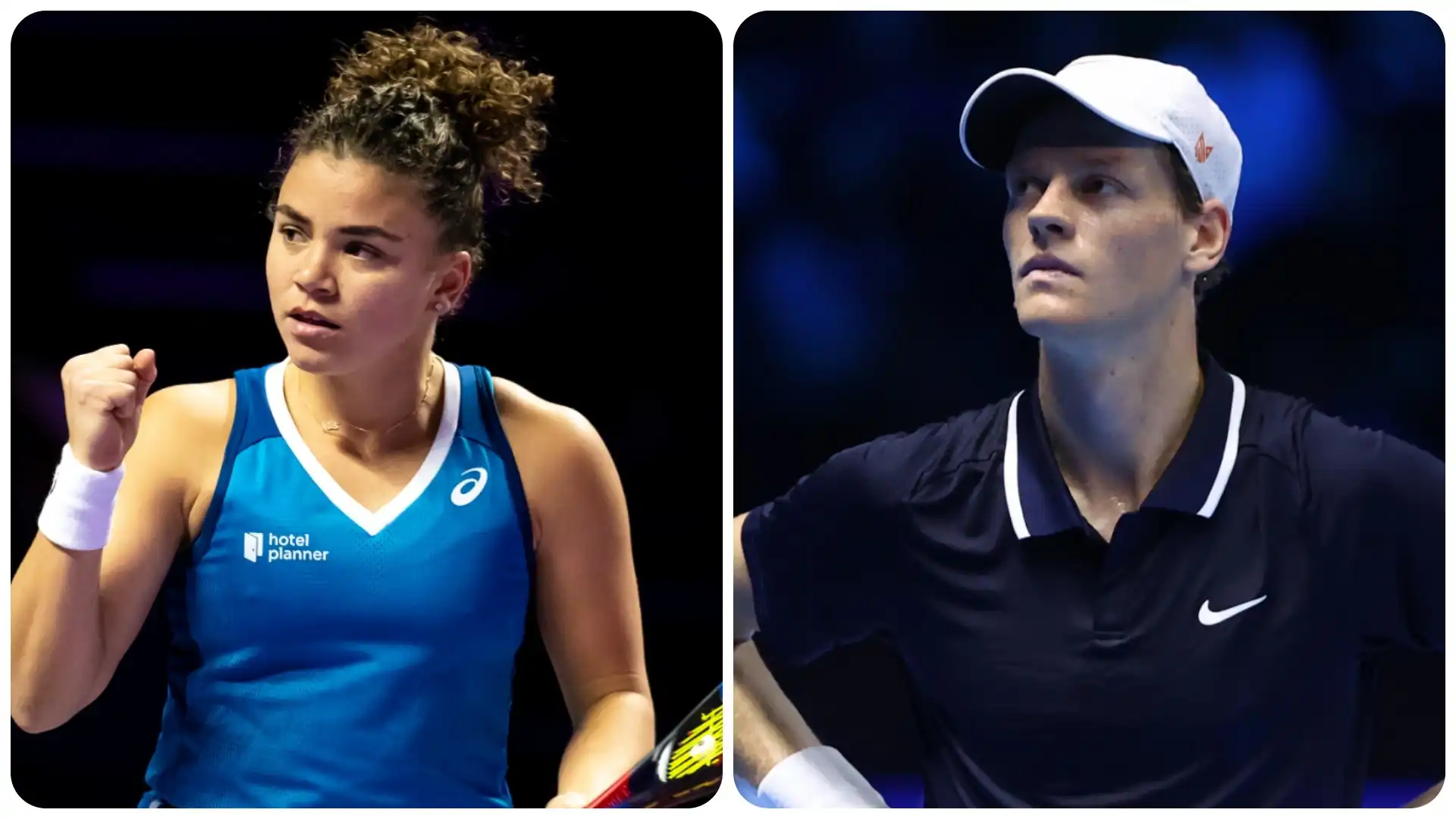
In the high-stakes world of professional tennis, unexpected moments can sometimes turn the tide. Recently, during a match in Shanghai, Canadian tennis star Felix Auger-Aliassime experienced just such a moment, receiving an unusual but welcome assist from a ball kid. This incident, while seemingly minor, highlights the unpredictable nature of sports and the often-unseen roles that support personnel play in athletes’ performances.
The young ball kid’s quick thinking and helpful gesture not only aided Auger-Aliassime in a crucial moment but also provided a heartwarming reminder of the human element within the competitive arena of professional tennis. The details of this event and its broader context within Auger-Aliassime’s recent performances will be explored below.
The Shanghai Assist: A Closer Look
The Moment of Assistance
The specific details of the incident in Shanghai are crucial to understanding its significance. While competing in a tournament match, Felix Auger-Aliassime found himself in a slightly awkward situation. He needed a specific item – details of which are not fully available but presumably something like a towel or perhaps assistance with equipment – and a ball kid swiftly and efficiently provided it.
This prompt action likely saved Auger-Aliassime valuable time and prevented any disruption to his momentum during the match. The speed and awareness demonstrated by the ball kid were commendable, turning a potentially frustrating moment into a seamless continuation of play.
Impact on the Match
Although it’s challenging to quantify the exact impact of this single act, small moments can often have a ripple effect in tennis. By minimizing distractions and maintaining his focus, Auger-Aliassime could sustain his performance. It is these subtle advantages that can make all the difference in a tightly contested match.
Whether it was the psychological boost of knowing he had support or the practical benefit of a quickly resolved issue, the ball kid’s assistance contributed positively to Auger-Aliassime’s overall game. It underscores the importance of every member of the team, no matter how small their role may seem.
The Crowd’s Reaction
Witnessing such a display of sportsmanship and quick thinking often elicits a positive response from the crowd. The audience likely appreciated the ball kid’s initiative and the smooth resolution it brought to the match. Such moments can enhance the overall atmosphere of the event, creating a more engaging and memorable experience for everyone involved.
Applause and cheers would have been a natural reaction, acknowledging the ball kid’s contribution and reinforcing the sense of community within the tennis world. These small interactions can foster a greater appreciation for the collective effort that goes into every match.
Auger-Aliassime’s Recent Performance
U.S. Open and Ranking
Prior to the Shanghai event, Felix Auger-Aliassime had been making notable strides in his career. Following a strong performance at the U.S. Open, he climbed to No. 13 in the world rankings. This achievement reflected his hard work and dedication to improving his game.
The rise in rankings also placed greater expectations on Auger-Aliassime as he entered subsequent tournaments. Maintaining this level of performance requires not only physical prowess but also mental resilience and the ability to handle pressure.
Davis Cup Withdrawal
However, the demanding schedule of professional tennis can take its toll. Shortly after the U.S. Open, Auger-Aliassime made the difficult decision to withdraw from a Davis Cup tie, citing fatigue. This decision was likely influenced by the cumulative effect of intense competition and travel.
It’s important for athletes to recognize their limits and prioritize their well-being to avoid burnout or injury. While representing one’s country is a great honor, it must be balanced with the need for adequate rest and recovery.
Impact of Fatigue
Fatigue can significantly impact an athlete’s performance, affecting everything from reaction time to decision-making. It can also increase the risk of injury, making it crucial for players to manage their schedules effectively. Auger-Aliassime’s withdrawal from the Davis Cup was a proactive step in preserving his long-term health and career.
Understanding the physical and mental demands of professional tennis is essential for appreciating the challenges faced by athletes like Auger-Aliassime. The decision to prioritize rest is often a strategic one, aimed at maximizing performance in future events.
The Role of Support Staff in Tennis
Importance of Ball Kids
Ball kids are an integral part of any tennis match, ensuring the smooth flow of play by retrieving balls and providing towels to players. Their efficiency and attentiveness can significantly impact the pace of the game.
While their role may seem minor, ball kids contribute to the overall professionalism and organization of the event. Their presence allows players to focus on their performance without being distracted by logistical concerns.
Coaches and Trainers
Behind every successful tennis player is a dedicated team of coaches and trainers. These professionals provide guidance, support, and expertise in various areas, from technical skills to physical conditioning. Coaches work closely with players to develop strategies and improve their game, while trainers help them maintain peak physical fitness and prevent injuries.
The relationship between a player and their coach is often a close one, built on trust and mutual respect. Effective coaching involves not only technical instruction but also psychological support and motivation.
Medical Staff
Medical staff, including doctors and physical therapists, play a crucial role in ensuring the health and well-being of tennis players. They provide treatment for injuries, offer preventative care, and advise players on how to manage their physical condition. The demands of professional tennis can take a toll on the body, making access to quality medical care essential for longevity in the sport.
Felix Auger-Aliassime is seen here in action; his recent match in Shanghai saw him receive unexpected assistance from a ball kid.
Access to immediate medical attention is crucial during tournaments, where players often compete in multiple matches over a short period. Having qualified medical professionals on-site ensures that any injuries can be promptly assessed and treated.
Lessons Learned and Future Outlook
Adaptability and Resilience
The incident in Shanghai underscores the importance of adaptability and resilience in professional tennis. Players must be prepared to handle unexpected situations and maintain their focus despite distractions. Auger-Aliassime’s ability to quickly adapt to the situation and continue his match is a testament to his mental fortitude.
Resilience is also crucial for overcoming setbacks and bouncing back from losses. The ability to learn from experience and maintain a positive attitude is essential for long-term success in the sport.
Teamwork and Support
The role of support staff, including ball kids, coaches, and medical professionals, highlights the importance of teamwork in tennis. While tennis is often seen as an individual sport, players rely on a network of support to achieve their goals. The contributions of these individuals can make a significant difference in a player’s performance and overall well-being.
Recognizing and appreciating the efforts of support staff is essential for fostering a positive and collaborative environment. Teamwork can enhance not only performance but also the overall experience of being a professional athlete.
Looking Ahead for Auger-Aliassime
As Felix Auger-Aliassime continues his career, he will undoubtedly face new challenges and opportunities. His recent experiences, including the climb in rankings and the decision to withdraw from the Davis Cup, will shape his approach to future competitions. Maintaining a balance between performance and well-being will be crucial for his long-term success.
With his talent, dedication, and the support of his team, Auger-Aliassime has the potential to achieve great things in the world of tennis. Fans will be eagerly watching to see what he accomplishes next.
For more related coverage on Felix Auger-Aliassime’s career and ranking, visit TSN.
Key Takeaways
- Unexpected on-court assistance can positively impact a player’s performance.
- Support staff play a crucial role in the success of tennis players.
- Balancing performance with well-being is essential for long-term success.
- Adaptability and resilience are key attributes for professional athletes.
FAQ
What was the nature of the assistance Auger-Aliassime received in Shanghai?
While the exact details are scarce, it involved a ball kid providing a timely assist during a match, possibly related to equipment or a towel. This quick action helped maintain Auger-Aliassime’s focus and momentum.
How did Auger-Aliassime perform at the U.S. Open prior to the Shanghai match?
Auger-Aliassime had a strong showing at the U.S. Open, which contributed to his rise to No. 13 in the world rankings. This performance set high expectations for his subsequent tournaments.
Why did Auger-Aliassime withdraw from the Davis Cup tie?
He withdrew citing fatigue, highlighting the physical and mental demands of professional tennis. This decision was aimed at prioritizing his well-being and preventing burnout or injury.
What is the role of ball kids in tennis matches?
Ball kids ensure the smooth flow of play by retrieving balls and providing towels to players. Their efficiency and attentiveness contribute to the overall professionalism of the event.
Who are the other key members of a tennis player’s support team?
Besides ball kids, a tennis player’s support team typically includes coaches, trainers, and medical staff. These professionals provide guidance, support, and expertise in various areas, from technical skills to physical conditioning and health management.
How important is mental resilience in professional tennis?
Mental resilience is crucial for overcoming setbacks, adapting to unexpected situations, and maintaining focus under pressure. It’s an essential attribute for long-term success in the sport.
In conclusion, the small act of assistance from a ball kid in Shanghai serves as a microcosm of the larger support system that underpins a tennis player’s success. From timely interventions on the court to strategic decisions about rest and recovery, every element contributes to the athlete’s journey. As Felix Auger-Aliassime moves forward, leveraging these lessons and support will be key to reaching new heights in his career. Stay tuned for future updates and consider following tennis news to see how these factors continue to influence the sport.

